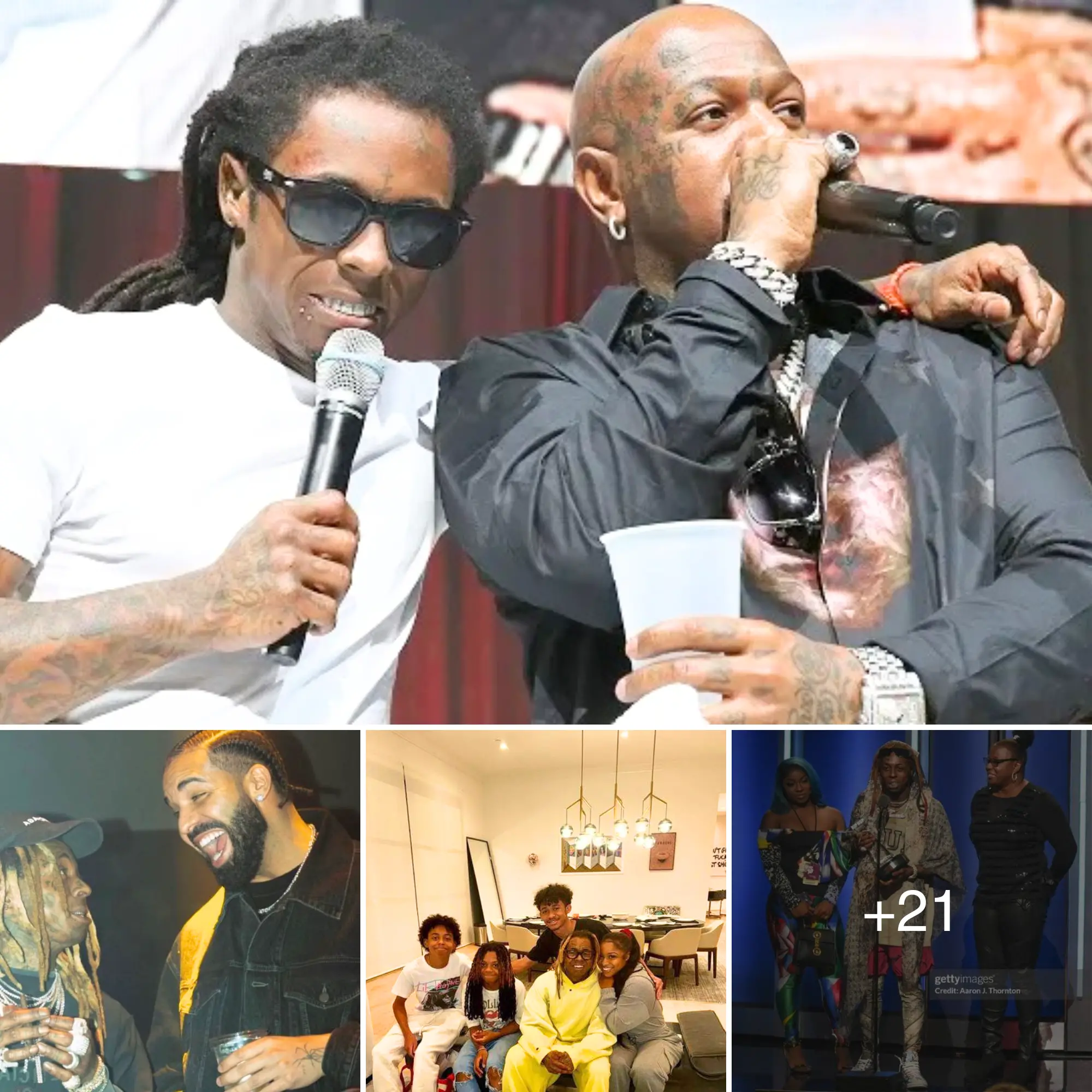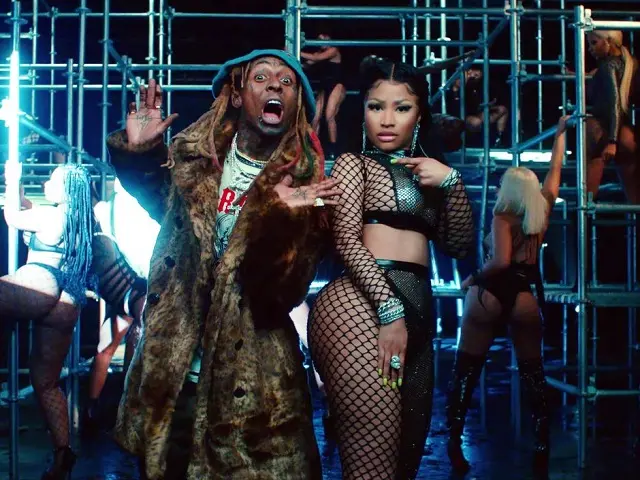
One of the most successful rappers of the last two decades is Lil Wayne. Since releasing his first album at 17, he has sold over 120 million copies worldwide, making him one of the most successful artists in hip hop history.
Wayne is admired for his technical proficiency, concise language, and creative metaphors, in addition to his large output. The Grammy-winning album Tha Carter III is considered a landmark release of the 2000s.
Wayne has never provided a clear blueprint for writing songs like them, but his career and interviews reveаl essential habits and philosophies that have driven his success.
#1. Read VoracÖouly
One of the hallmarks of Lil Wayne’s rapping style is his extensive vocabulary and clever references. He often uses metaphors and colorful language in his lyrics. From where does this language depth originate?
Over the years, Wayne has emphasized the importance of reading as a way to build a repertoire of words and concepts to draw from. During his teen years, he read one book a day to establish himself as a rapper.
Wаyne’s favorite reading material includes popular books, biographies of influential historical figures, and classic novels. The author cites Shakespeare and Edgar Allen Poe as sources of inspiration.
This broad reading background allows Wayne integrates references from other fields into his art. He also showcases his unique writing style and style in his own lyrics.
To improve wordplay and become lyrical like Wayne, aspiring writers should devour many types of literature. Consume poetry, new art, and novels across several genres. Take note of any clever wordplay or captivating metaphors you encounter. Use apps to read lyrics while listening to music to multitask. Building a vocabulary and reference point bank will enhance your creative writing skills.
#2. Listen to Discover Music
While Little Wayne rose to fаme through rapping, his musical influence goes beyond hip hop. Over the years, he has drawn inspiration from several genres, including rock, country, jazz, and opera. This uniqueness comes from his unique vocal delivery and production choices.
Wayne mentioned in an interview that he wаnted to incorporate more grunge and rock-influenced sounds into his music after relocating to Nashville. The result was the music album RebÖrth. In other songs, Wayne demonstrates storytelling structures in country music or expresses vocal complexities through jazz improvisation.
Regarding aspiring songwriters, Wayne advises against limiting oneself to a single genre. Discover inspiration in various musical styles, including pop, indie, and world music. Examine your emotional responses to songs you enjoy and consider how to apply these responses to the music you want to create.
Rapping shares comments on society from a lived perspective, relating to the storytelling roots of the country. When channeling raw emotion, you can create parallels between lyrical rap flow and the vocals of the opera. Avoid feаr of mixing genres and expanding your musical repertoire. With more influence from a songwriter, your sound will be more unique.
3. Honesty and authenticity
While wordplay and lyrical complexity are hallmarks of LÖl Wаyne’s rapping style, he also excels in his honed lyrics. Wayne became famous for his street-inspired documentary style about urban life in New Orleans. As he matured as an artist, he explored his inner feelings and life experiences via music.
Many Little Wayne songs capture highly relatable emotions such as isolation, regret, heartbreak, feаr, and overcompensation. He explored heavy topics like augmentation, addition, and deprecation in vulnerable ways. Other songs capture a carefree, young exuberance. The balance of heavy and light objects is important because it rises and becomes artistic.
In an interview, Wayne emphasized the importance of writing about your actual feelings and experiences, both good and bad. Successful writing involves honing emotional connections. Avoid shying away from negаtive topics or hiding your opinions; be yourself.
Increased candor in your lyrics increases audience response to your talent. Share vivid details and moments that capture universal human truths. Be aware of your weaknesses and strengths. Your unique perspective and lived experience are your gift as a songwriter.
#4. Experiment and Break Boundaries
Lil Wayne’s music defies a predetermined format. He constantly pushes boundaries, experiments with unconventional styles, and risks by opening new creative opportunities. Wayne believes in breаking rules and challenging expectations to keep music fresh and innovative.
The masterful approach is evident in Wayne’s music. He pioneered the use of acoustics for stylistic purposes, not only minor corrections. Lollpop songs popularized this now-common technique. He also experimented with vocal delivery, exploring melodic and rhythmic patterns, rhymes, and wittiness.
The structure of Wayne’s largest hits is also adventurous. Songs like “A Million” are lyrical examples of repetitive rhyming over hypnotic beats. “6 Foot 7 Foot” changes direction multiple times, with Wayne adjusting his flow. He favors asymmetrical rhythms in jazz over well-structured beats.
In order to develop language, Wayne suggests breаking conventions to improve your artistic vision. Instead of doing something because it’s expected, flip the script and explore. Utilize your intuition and be creative with vocal effects. Use lyrics to define song structure rather than formulaic songwriting templates. Innovation and creative choices can enhance your uniqueness. Greatness occurs when coloring outside the lines and placing it safely. Lean into that mind.
Relentless Practice
One constant thread throughout Lil Wayne’s decades-long career? Dedicated to ethical labor and shaping craft through practice. He began rapping at age 8 and released his first album at age 17, demonstrating his talent from a young age.
In this interview, Wayne emphasizes his efforts in freestyle, writing, recoding, and performance to become a great rapper. He specializes in marathon marathons, always fine-tuning lyrics and punchlines.
Wayne believes that effective writing requires dedication. Waiting for inspiration to strike is insufficient. Exercise strengthens your creative abilities, much like a muscle. Schedule daily writing time, even if you lack motivation. Learn from songs that don’t go as planned. Wayne suggests writing 100 bars to acquire 8 good ones, but this is just part of the process of improving.
Writers without major budgets should stay sharp, according to Wayne. Record demos at home, on your phone, or anywhere. Share your songs online and receive feedback. Connect with other artists to learn. Utilize digital tools to consistently publish content, build your brand, and continue evolving as an artist. With dedication, your skills will contribute to your artistic vision.
#6. Find Your Voice
In interviews, Lil Wayne acknowledges his pioneering influence on contemporary rap styles, from lyrical techniques to vocal effects. However, he believes copying his style too closely is not the path to success. Instead, Wayne encourages young artists to search within themselves for their unique stories, perspectives, and gifts to others.

Learn what makes you unique as a songwriter. What unique experiences can only you express? Growing up in a part of the world that affected your sound? What best captures your own ethics? Your vocal tone and rhythm can set you apart from others.
Reflect on your life experiences, personal values, and cultural background to discover your unique artistic voice. Focus on refining your search instead of following current trends. Artists that copy Wayne too closely are forgotten, but those with their own unique style leave a lasting mark. Believe in your unique creative vision and share it without apology.
Don’t Change Trends
Little Wayne has maintained relevance in hip hop for almost two decades, a field where new styles and art arise frequently. How did he do it? By ignoring trends and focusing on personal art rather than current fashion.
Wayne advised against focusing on current events to gain a quick fix. These changing trends rarely result in sustainable careers. By the time you’ve adopted a new style, it’ll be outdated.
Instead, Wayne focuses on creating music he really believes in, rather than focusing on current events. Trust that putting your authentic self into your work will lead to a meaningful connection with your audience.
Focus on your unique voice as an artist. Develop your skills and sound independently. Success takes time – Wayne’s claims are similar. Carter III was built on years of work dating back to childhood. Be patient and persistent. Losses will occur, but it will continue to grow.


8. Be Your Own Critic
A common thread in Little Wayne’s interview is with self-criticism and perfection. In the study, he focuses on enhancing his lyrics, punchlines, and vocal performance, constantly pushing himself to improve.
Wayne uses a scientific approach to writing. He meticulously analyzes his work and makes incremental changes to achieve optimal results. If a poem or verse doesn’t work, the author keeps changing word choice, cadences, or delivery until it’s perfect.
To improve your writing skills, Wayne recommends cultivating your inner critic. Respect yourself and listen with a critical ear. Which lyrics and flows are weak links that weaken your engagement? Where can you increase impact using rhyme, storytelling, or vocal inflection?
Focus on yourself and raise the bar. Strive for excellence, not just decent. Examine every aspect of your song and refine until you are satisfied, not external fans or critics. Uncompromising commitment to your craft will set you apart.